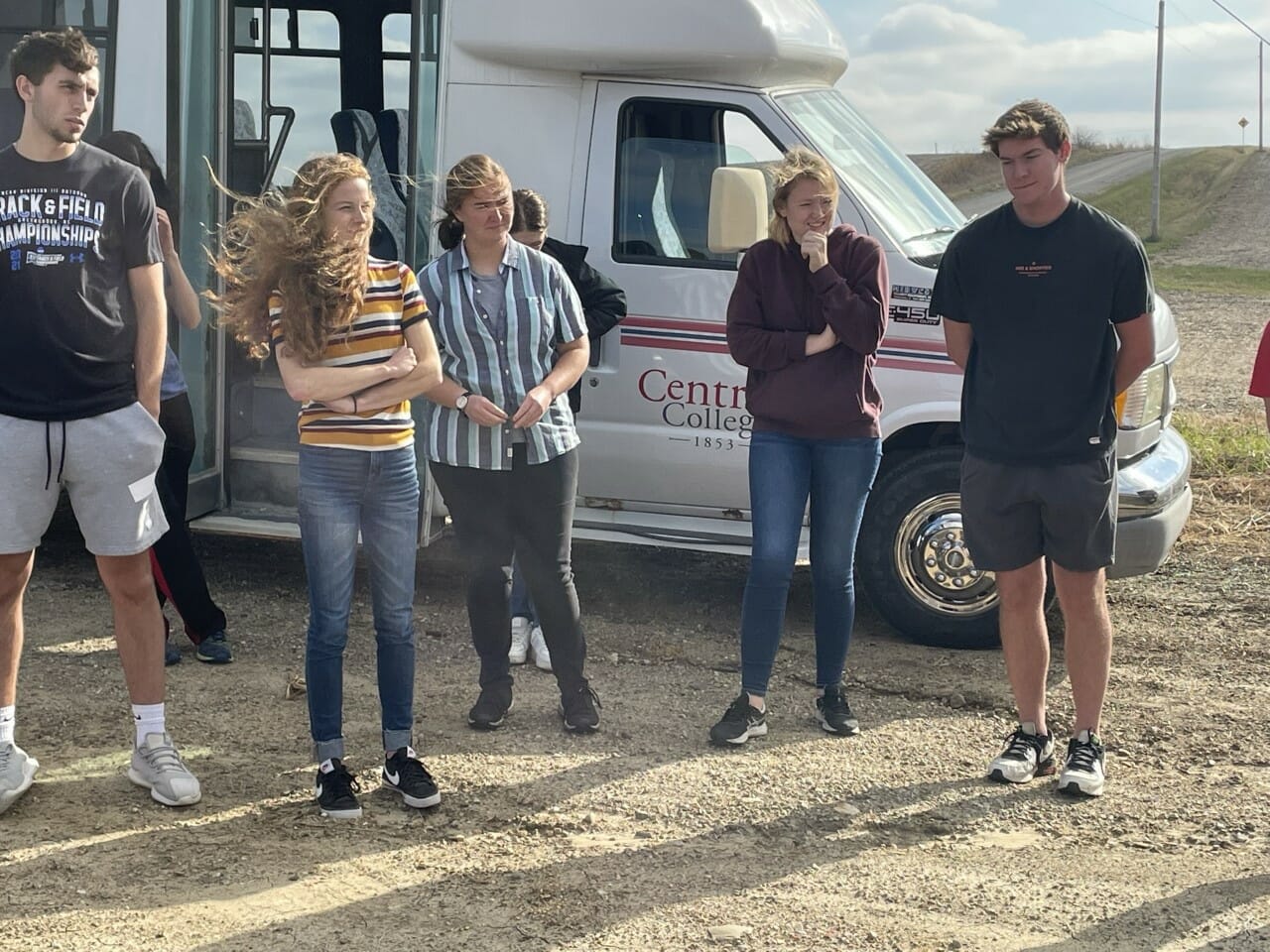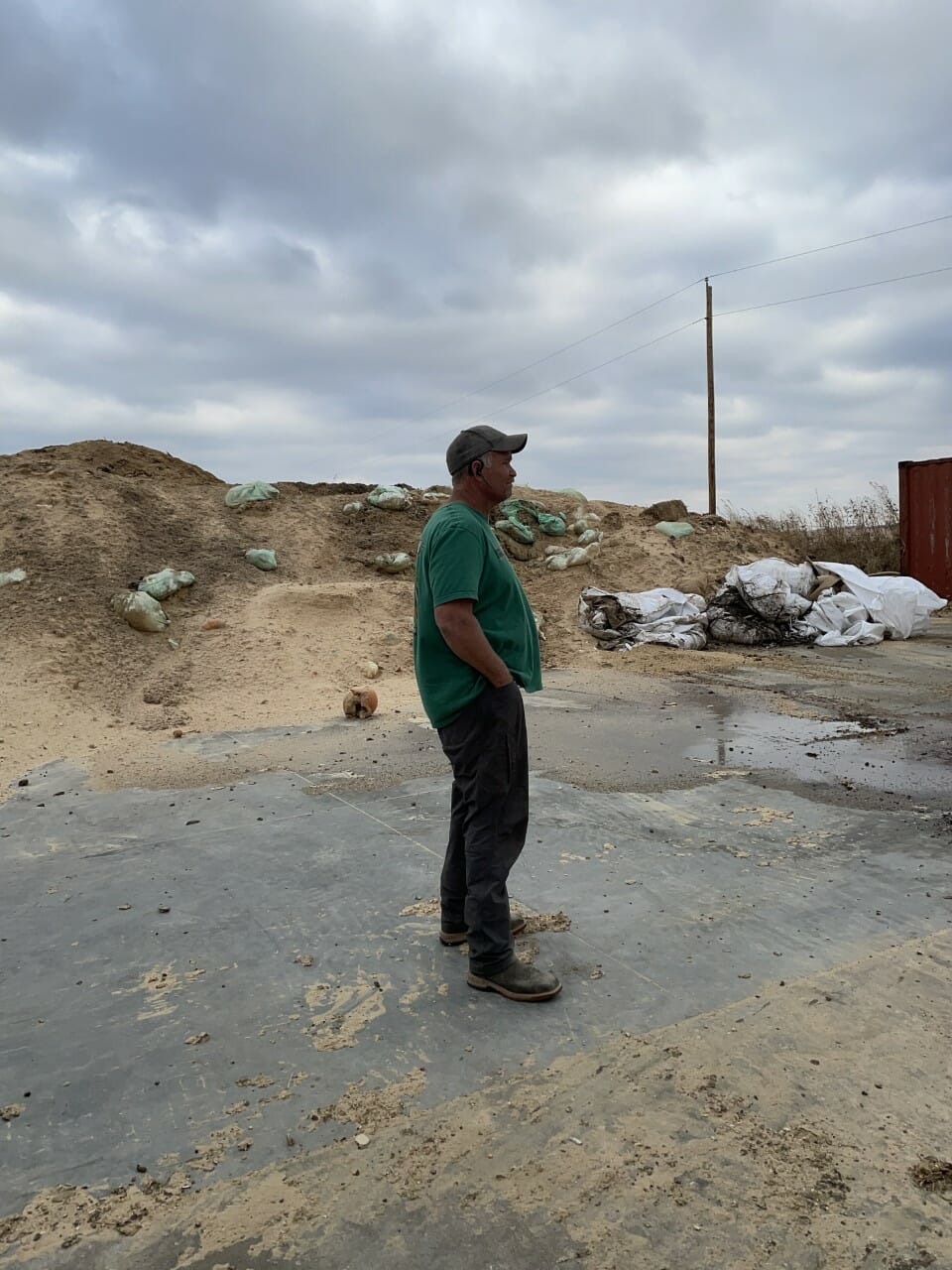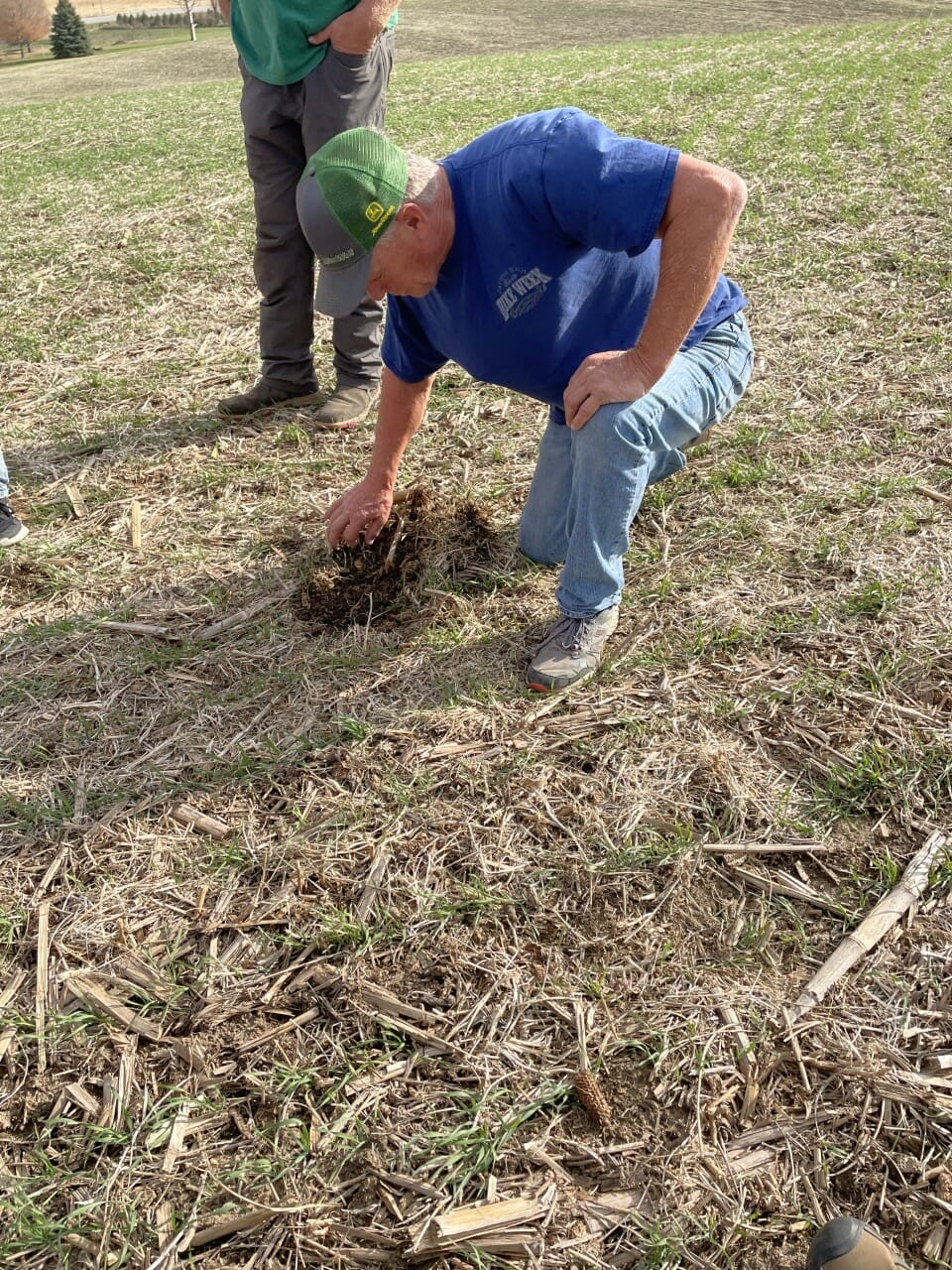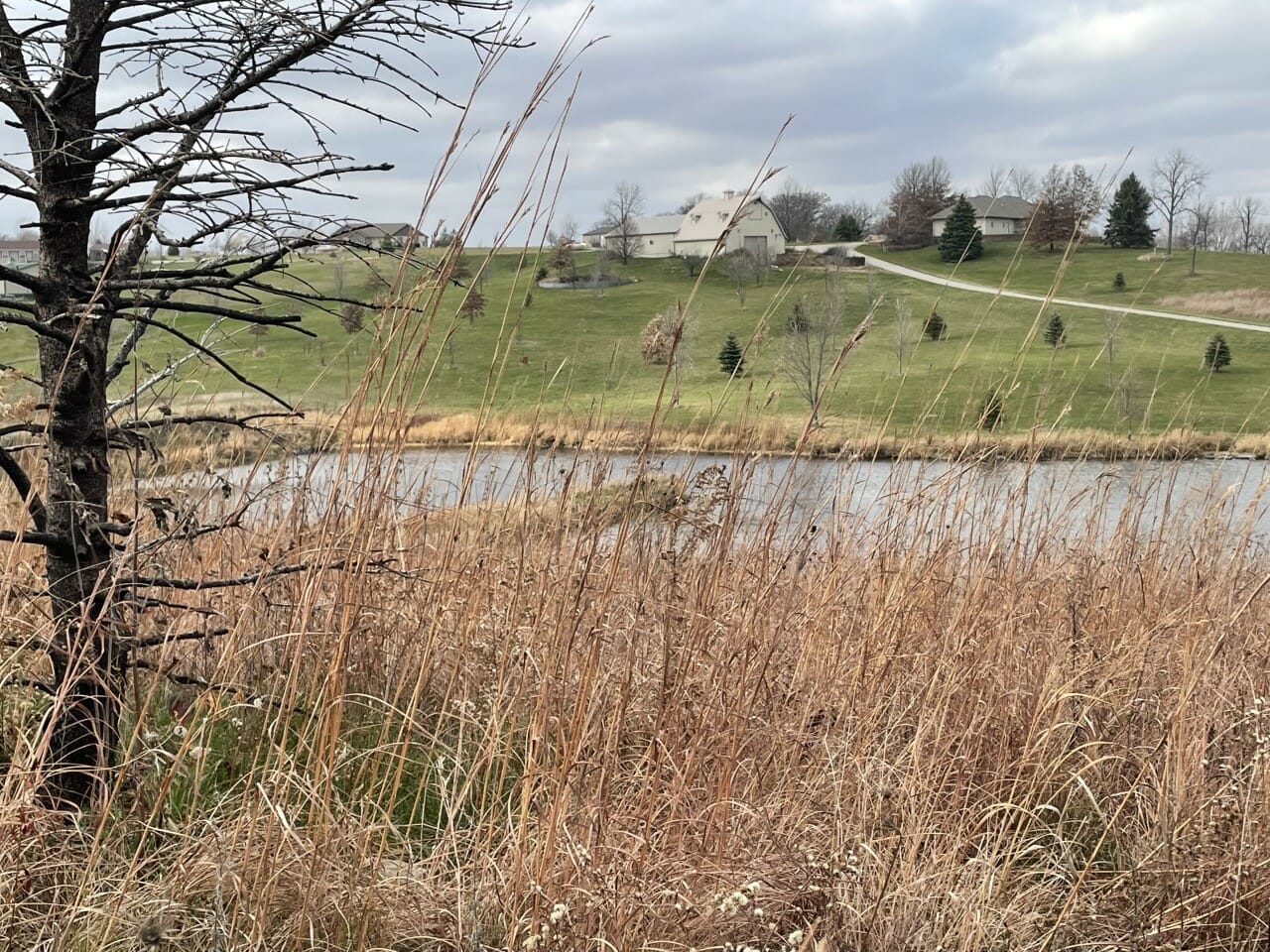Nature’s Classroom — Central College Students Gain New Understanding in On-Farm Habitat Practices

Students from Central College arrive at PFI members Curt and Randy Van-Kooten’s farm for a field trip aimed at exploring environmentally sound on-farm conservation practices.
“The world is in need of conservationists that understand agricultural systems and agricultural workers that understand conservation,” says Professor Russ Benedict. “That’s why we’re here. To give the students the opportunity to see both sides of the equation and that places like Iowa can have a robust agricultural economy without sacrificing the environment.”
Students from Central College in Pella, Iowa, were given a hands-on learning experience in working lands habitat conservation in early November when landowners and PFI members Curt and Randy Van Kooten, opened up their farm to Professor Russell Benedict’s conservation biology class.
Dubbed “Goemants Farm” for the original owner, the 50-acre property is a conventional row crop operation of corn and soybean fields on the outskirts of Lynnville.
Calling All Future Conservationists and Farmers
Curt and Randy had the students on their toes while presenting their established prairie strips and pointing out birds’ nests in hedge trees. Students scrambled up hills and waded through tall prairie grasses in his eagerness to share his habitat conservation practices, pointing out late-blooming flowers and grasses.
“We’ve built six ponds on this land,” Curt tells them as the class summits a small but particularly steep hill. “Ponds are the ultimate badge of honor in habitat. We see so many kinds of birds. Owls, geese, ducks and eagles. They keep rodent populations in check naturally, without additional pesticide use.”
Curt kept up the frenetic pace as he explained how root structures of cover crops and prairie strips reduce erosion and run-off, while increasing soil health, and in turn, farm profitability.
“That’s the real gist of it. You want a farm to be successful. The farmer needs profit and the world needs fuel and food. One of the best ways to set up a farm for success is caring for the land that makes up the farm. Crops are part of the ecosystem when planted, and they depend on the health of the world around them. Take care of that, and farming success is a lot more likely. You can do both, care for and build habitat and turn a profit.”

Randy Van Kooten stands in front of the families nearly 12-foot-high compost pile. The compost is sold locally as a nutrient aid for soil health.
Teaching the Next Generation
Like Curt, Russ believes working farms can include habitat preservation and improvement, and wants his students, whether they hope to someday work for an environmental organization or operate their own farms, to bring this mindset to their future careers.
“I had done personal visits, without the class, to various farms trying to find one that would not only be practicing a wide variety of conservation practices that benefit soil and water, but that would also be amenable to hosting a field trip for college sophomores,” he explains. “It was difficult to find someone close by that had an array of habitat projects already established. I met Curt and Randy through PFI, I was impressed with their enthusiasm in hosting my class. I hope to keep this relationship going forward in the future.”
Similarly, Curt was excited to connect with Central College. “Habitat conservation on my farm is kind of an enjoyable hobby for me. We’ve installed ponds, and I’ve been maintaining seven acres of prairie strips and planted dozens of trees like spruce and oak. I even get to show off my favorite farm hobby — composting. Curt composts everything — manure, downed trees ground to sawdust and food scraps.
“The compost we spread on the fields helps us cut down on fertilizer expenses. Really, I was glad at the chance to show future farmers all that can be done, even on a conventional farm.”

Curt Van Kooten emphasizes the importance of cover crops to students to increase soil health and stability.
If You Are Interested in Hosting a Field Trip on Your Farm
“Curt and Randy really had a great farm for a field trip. All the trees, ponds, prairie strips and cover crops were exactly what I wanted my students to see,” says Russ. “There are lots of other colleges and universities across Iowa, and hopefully more farmers will be open to allowing class visits.”
If you are a farmer that is interested in hosting a field trip on your farm, Russ recommends reaching out to local colleges near you.
“Generally the office of student affairs or a specific department like mine for biology, are easy to reach through the college directory. Just call them up and let them know you’re interested.” Looking at the faculty web pages to see who a place-based biology, ecology or environmental science class might have can also help narrow down your search. High school clubs might also be interested in after-school visits, which are easier to coordinate than formal high school field trips.
And if you have a class or club and would like help finding a farm to visit, reach out to PFI. Either through our website, or by calling us at (515) 232-5661.


